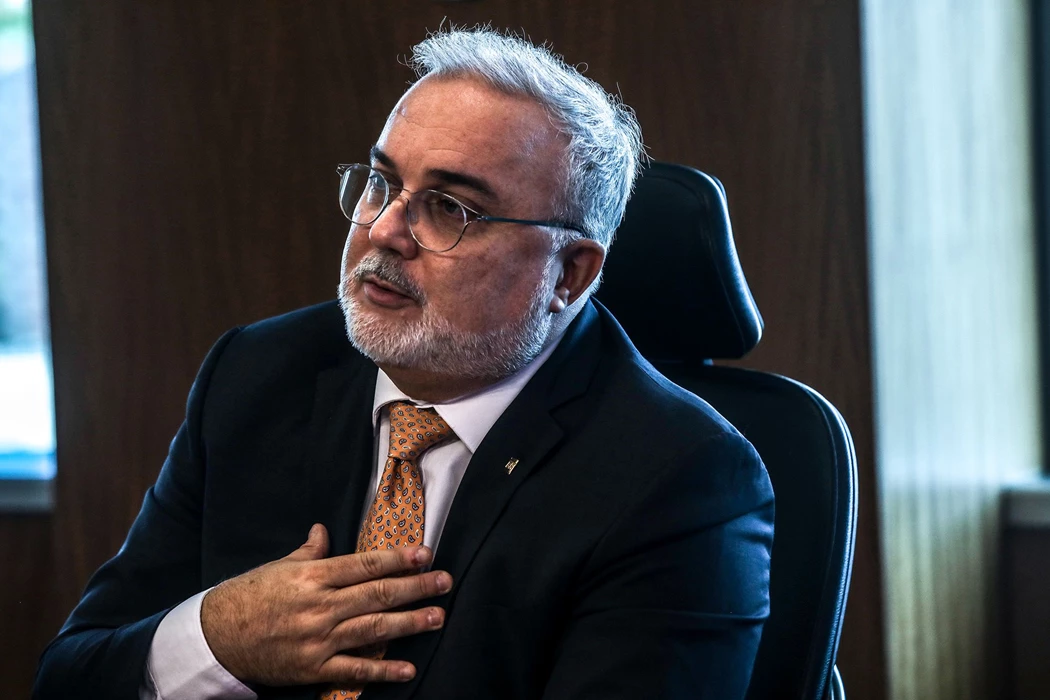Petrobras CEO Says He’s Ready to Be World’s Last Oil Producer
(Bloomberg) -- Jean Paul Prates, the head of Brazil’s state-controlled oil company, isn’t deterred by the world’s energy transition. He says Latin America’s largest producer should keep increasing fossil fuel output for decades to come.
“We will get market share,” Prates, chief executive officer of Petrobras, said in an interview in Rio de Janeiro. “We may be the last to produce oil in the world.”
His assertion of Brazil’s ambition echoes the policy of other oil exporters like Saudi Arabia, who argue that investing in fossil-fuel expansion is compatible with a global ambition to reach net zero carbon emissions. Many, including the International Energy Agency, disagree, claiming there’s no room for anyone to target increased crude output if the world is going to reach its climate goals.
The world has found itself in a tight place as limited fossil fuel supply amid a lack of investment sparked a global energy crisis that raised consumer bills and worsened global inflation. Even leaders who position themselves as fighters against climate change such as US President Joe Biden have called for increases in oil output to help tame rising costs.
Over the last 20 years, Brazil has emerged as a major oil producer, diverging from many of its Latin American peers. Drillers have exploited giant offshore oil fields, known as pre-salt, because the crude is trapped under a geological layer of salt. Petrobras operates most of those fields with international companies such as Shell Plc holding minority stakes.
Appointed by President Luiz Inacio Lula da Silva at the start of his third term earlier this year, Prates said that the oil production will remain the top priority. Investment in wind power and other renewable technologies at Petroleo Brasileiro SA, as the company is formally known, will be modest in comparison.
Prates’ comments may ease concerns among some minority investors that the new administration would prioritize non-core investment projects over the oil and gas business.

While Lula has championed the fight against climate change, pledging to slow deforestation in the Amazon, he’s also been a supporter of Brazil’s oil industry. The boom in production provided growing tax revenue during Lula’s first two terms, helping to finance his ambitious social spending.
Brazil’s output is set to reach a record 3.4 million barrels a day this year and will keep growing until 2030. After that, the country will need new discoveries to maintain and grow production.
“We came out very late to this game as a big producer, but we have to keep the ball rolling,” said Prates, 54, who was a senator in Lula’s Workers’ Party before his appointment.
He said the priority will be exploiting existing finds in the pre-salt areas and finding fresh ones, while looking to open up new basins in other parts of Brazil, including the so-called equatorial margin in the far north of the country. That region has similar geology as areas off nearby Guyana, where Exxon Mobil Corp. has found billions of barrels.
Petrobras is ready to start exploration drilling in the region, but is awaiting approval from regulators. The area is host to ecosystems considered unique, which has made it a controversial location for drilling and drawn concern from Brazil’s environment minister, Marina Silva.
“The state of Brazil will have to decide if that goes on or not,” Prates said. “All we are trying to do is to find oil.” If Petrobras gets the go-ahead, drilling could start on an exploration well as soon as April, he said.
Petrobras will look at investments in offshore wind because the company has experience executing big projects in Brazil’s Atlantic Ocean. It’s exploring partnerships with European oil majors, including Norway’s Equinor, he said.
“This is an environment we already know, and we have in Brazil undoubtedly the best environment for investment in offshore wind in the world because the climate is favorable,” he said. The rest of the Petrobras push into the energy transition will involve two areas where it already has expertise: carbon capture and biofuels.
Prates said Petrobras — which paid a record dividend last year, driven by higher oil prices and a wide-ranging divestment program — should strike a better balance between channeling cash to shareholders, including the Brazilian state, and investment.
“We should have a more balanced view of that, without neglecting the big attractiveness of having big dividends,” he said.
©2023 Bloomberg L.P.





